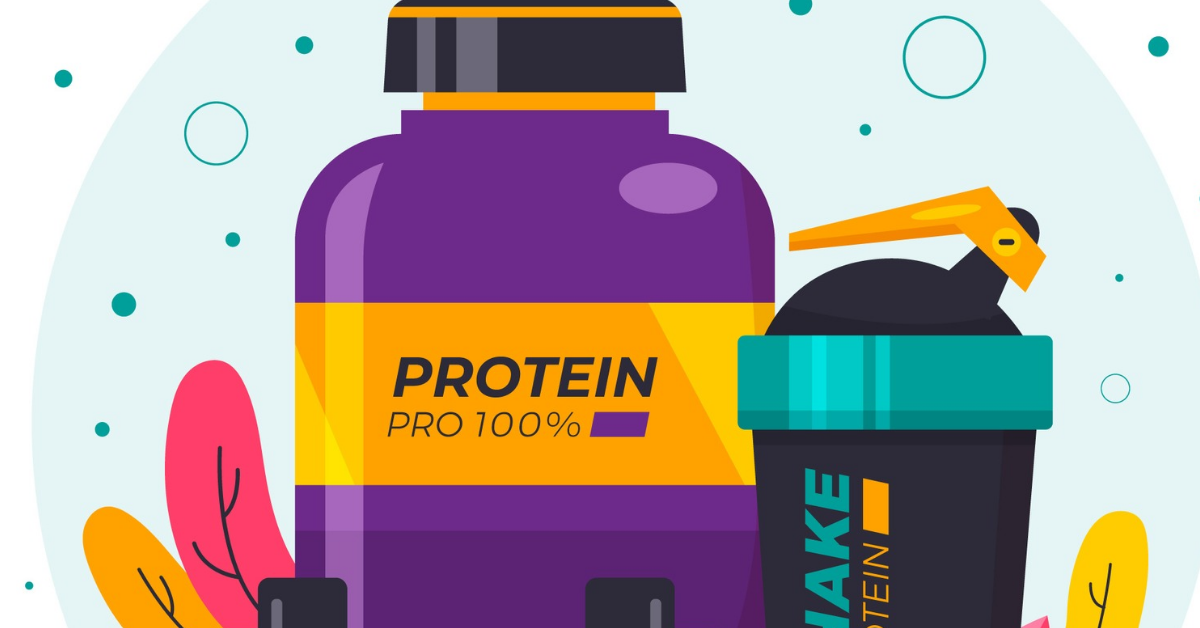In today’s fitness world everyone is looking for good whey protein. selecting a good whey protein from the market is essential for health and fitness goals. You can use these tips to choose a good whey protein..
Table of Contents
1.What is whey protein powder ?
Cheese is produced from high-quality milk, during which the whey, the liquid part of the milk, is separated, which is converted into three different types of protein powders. Whey protein contains nine amino acids, which are necessary for building protein in the body.
2.Identifying What Your Protein Requirements Are
Before buying whey protein on the market, you need to understand your protein requirements. The amount of protein you need depends on factors such as age, fitness goals, and activity level. Athletes and bodybuilders typically consume about 1.2 to 2.2 grammes of protein per kilogramme of body weight per day.
3.How to Determine Your Protein Consumption?
Use this easy calculation to get your daily protein requirements:
Highly active individuals or athletes: 1.2-2.2 grams per kilogram.
Moderately active individuals: 1.0-1.2 grams per kilogram.
Sedentary individuals: 0.8 grams per kilogram of body weight.
4.Balancing Protein Sources
Do not rely solely on whey protein to increase your protein intake. Balance it with protein-rich foods like eggs, dairy products, fish, and legumes. You can use protein supplements for your daily protein needs if you can’t get enough from food.
5.Types of Whey Protein
Whey protein comes in three forms
Whey Protein Hydrolysate: The most expensive form, pre-digested for faster absorption, is suitable for those with digestive issues.
Whey Protein Isolate: further processed to minimise fat and lactose, yielding about 90% protein, ideal for those with lactose intolerance.
Whey Protein Concentrate: Contains 70–80% protein, retaining more of the beneficial nutrients found in whey.
6.Comparing Whey Protein Types
| Whey protein types | Advantages | Cons |
| Whey protein hydrolysate | Quick absorption and potentially less gastrointestinal distress | Most costly, bitter flavor. |
| Whey Protein Concentrate | More affordable, retains nutrients. | Lower protein content, higher levels of fat and lactose. |
| Whey Protein Isolate | High protein content, low fat and lactose. | More costly, fewer beneficial nutrients. |
7.Checking the Ingredients
It is best to avoid whey proteins that contain artificial flavours, sweeteners, and fillers. A good whey protein should have a clear and accurate list of ingredients with minimal additives.
8.Key Ingredients to Look For
Primary Protein Source: Whichever protein hydrolyzate, isolate, or concentrate you plan to purchase, make sure that the respective protein is provided in the first ingredient listed.
Minimal Additives: Try to choose one that contains few artificial flavors, fillers, or sugars.. It is better to avoid flavourings and look for non-flavourings instead.
9.Research Brands
Do a little research on the brand of whey protein you plan to buy. The best option is to buy the most expensive whey supplement made by a well-known brand. It’s a good idea to check reviews from people who have bought the supplement and do a lab test on the supplement.

10.How To Research Brands
Check Reviews: If other people have bought the protein you want to buy, check their reviews and see if there are positive reviews about it on all platforms.
Third-Party Testing: Find out if the brand has had their product tested by a third party.
Company Transparency: Look for brands that reveal their manufacturing, testing, and sourcing processes. The best companies will disclose these types of things.
11.Digestibility
Whey protein hydrolysates and isolates are easier to digest. Digestive problems are common in people with sensitive stomachs. It is also possible to purchase whey proteins containing digestive enzymes.
12.Factors Affecting Digestibility
Hydrolysis: Hydrolyzed protein does not cause digestive problems as it is pre-digested.
Lactose Content: Whey protein concentrate contains more lactose. Lactose causes digestive problems for some people.
Added Enzymes: Digestive whey proteins with added digestive enzymes aid in faster digestion.
13.Tips for Improved Digestibility
Choose Isolate or Hydrolysate: Suitable for those with sensitive stomachs and lactose indigestion
start small amount of protein intake:Start with a small amount of protein and gradually increase the amount
Mix with water: When combained with water,protein powder ease stomach discomfort
14.Flavor and Mixability
Whey protein is available in many flavors. Most people prefer flavoured proteins, so try to use unflavoured whey whenever possible. Unflavored whey protein does not include sugar, thus it does not increase the amount of sugar that enters the body.
15.Enhancing Flavor and Mixability
- Mixing whey protein with cold milk or cold water helps to enhance the taste.
- Adding fruits and nuts to the protein increases the flavour and gets more nutrients into the body.
- Mix the whey protein using a blender and shaker, as this helps with mixing quickly.
16.Price and Value
Most well-priced protein powders ensure quality for the price. The price per scoop is given for every product. Make sure the ingredients are of good quality. Always look for well-priced protein powders that are pure and have the best ingredients.
17.Evaluating Cost-Effectiveness
Serving Size: Make sure you get enough protein from one scoop.
Ingredient Quality: Higher-quality ingredients mean higher prices.
Cost Per Serving: Do a cost-per-serving calculation to compare items efficiently.
18.Budget-Friendly Options
Use Discounts: Look to use good brands when they offer discounts.
Bulk Purchases: Take advantage of this if you can get it cheaper when buying a product in bulk.
19.Additional Nutrients
Most whey proteins have branched chain amino acids and preworkouts which may not be necessary if you’re a beginner. While these nutrients can be beneficial, make sure they are appropriate for your fitness goals.
20.Beneficial Additives
BCAAs (branched-chain amino acids): help with muscle recovery and growth.
Vitamins and minerals: support overall health and can be particularly beneficial if your diet lacks certain nutrients.
Creatine: enhances strength and muscle mass gains.
21.Additives to Approach with Caution
Artificial Flavours and Colours: May cause adverse reactions in sensitive individuals.
Excessive Fillers: Unnecessary ingredients that do not contribute to muscle gain or overall health.
Added sugars: sugars can contribute unnecessary calories.
FAQ
Is it okay to take whey protein every day?
Are cheaper whey proteins less effective?
How do I know if a brand is reputable?
can I find whey protein without artificial additives?
Should I get all my protein from whey?
Can whey protein cause hair loss?
Conclusion
Choosing the right whey protein to include in your diet is essential for optimal health and muscle growth. Understanding the amount of protein your body needs and the different types of protein powders can help you choose the right protein for your lifestyle. The right whey supplement with high ingredients and low additives can optimise your workout results and support your overall health journey.

1 thought on “How To Select Best Whey Protein On The Market”